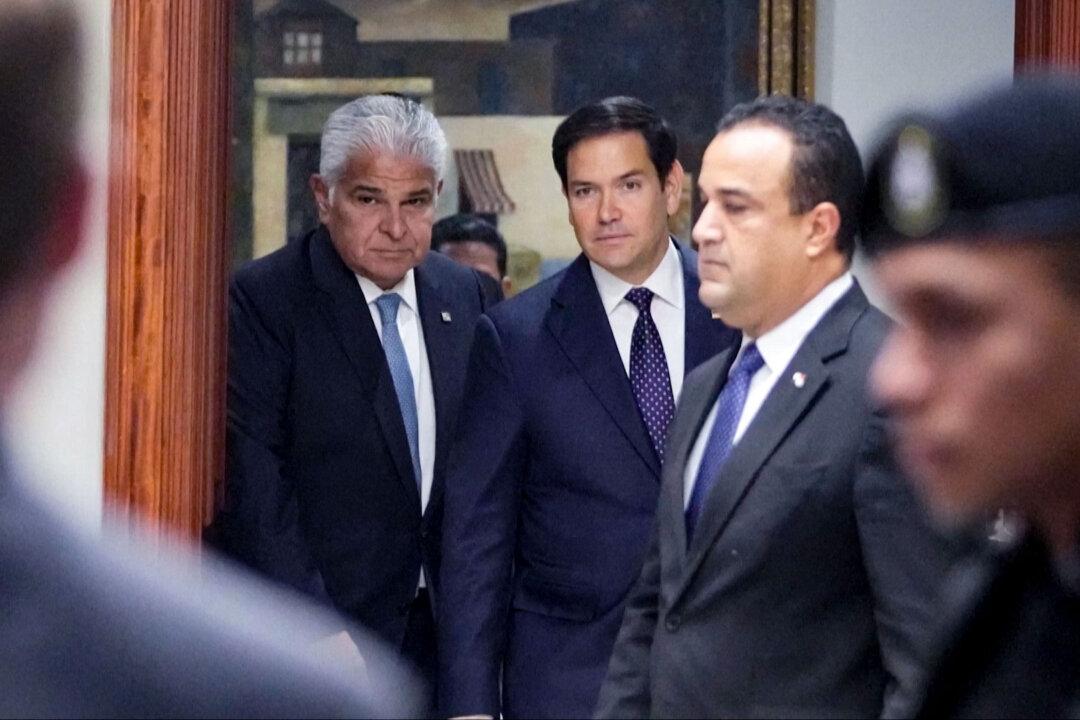The president of Panama on Feb. 6 denied a U.S. State Department claim that it had reached an agreement with his country to allow U.S. warships to transit the Panama Canal for free.
“I completely reject that statement yesterday,” Panamanian President José Raúl Mulino said during his weekly news conference, adding that he had asked Panama’s ambassador in Washington to dispute the State Department’s statement.





